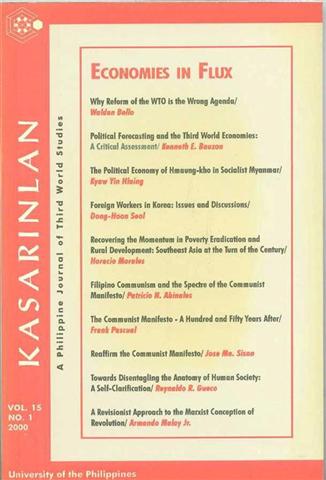Political Forecasting and the Third World Economies: A Critical Assessment
Abstract
In the context of the globalization process, the enterprise of political risk analysis and the role of political forecasters are critically examined. Although this enterprise has been around for decades, the sophistication of its tools of analysis was due in large measure to the influence of economists. Furthermore, it was geared more towards the study of inter-state actors, emphasizing prediction of events that would impact on foreign policy. In the last two decades or so, we have seen a proliferation of private, for profit political risk management organizations often with the participation of academicians on the side at the service of international business corporations. This shift signified more than the growth of the mother discipline of political science; it reflected the heightened importance of political information in an age when national borders are no longer as significant in determining the extent and nature of global economic relations. Being that political risk analysts are at the vanguard of a business operation ó much like an advance party sent to scout an unfamiliar terrain ó gathering valuable information in behalf of their corporate clients, this essay assigns to them at least some responsibility for what their clients ultimately decide to do with the information they provide. The essay also examines critically the broader question concerning the relationship between social scientists and society, between social knowledge and its consequences, and what objectivity means to the political risk practitioners in the era of neo-liberalism.
Published
2009-07-28
Section
Features
By submitting a manuscript, the authors agree that the exclusive rights to reproduce and distribute the article have been given to the Third World Studies Center.



